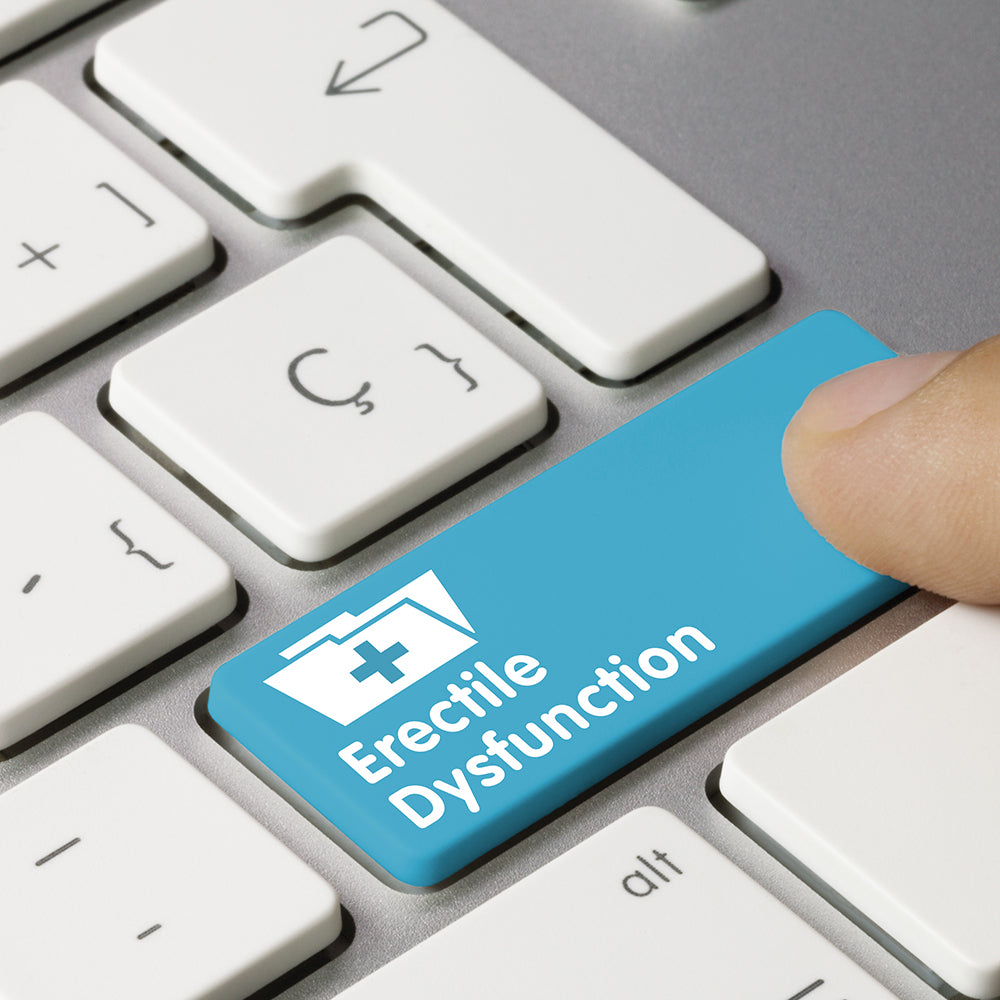Your Cart is Empty

Erectile dysfunction (ED) most commonly affects men over a certain age, with fifty percent of American males over fifty having experienced ED at some point during their life. Try not to despair though, many men stay active in the boudoir even well into their 90s. It is not age alone that determines performance. There are many medical reasons which can also affect sexual function.
ED is inefficiency in accomplishing and maintaining an erection, hampering any effort to engage in conventional intercourse. Men often traditionally defined their masculinity based on their highly critical self-evaluation of erectile performance. But definitions and roles are changing. Increasing numbers of men undergoing surgery for prostate problems has seen a rise in the numbers of men who suffer with ED, which is acknowledged as a risk and side effect of the surgery. Heightened awareness, and more open discussion between couples, means a greater appreciation for alternative approaches. Conventional intercourse is increasingly recognized by both men and women as not synonymous with intimacy. The realization that intercourse is not automatically the zenith of the woman’s sexual satisfaction is finally sinking into the male consciousness. Still, ED can still be extremely frustrating for both parties. The condition can lead to a ripple effect of psychological concerns impacting a relationship, such as stress, worry, anxiety and even depression in severe cases. The same psychological problems are also a major cause of this condition.
Medical conditions causing ED can often be related to a man’s prostate health as well as certain heart conditions, which can affect performance for the long term or just be a temporary glitch. Sleep is another factor and not getting enough can cause ED to occur. Men who have ED because of psychological concerns can, in most cases, still manage to achieve night time erections; if he’s not experiencing these then the chance of his problem being medical is more likely. It could be that a simple medication is all that’s required to regulate his nerves, hormones or prostate. Likewise, it could be that his current medication is actually causing the problem. It’s best to speak to a doctor and explore all avenues.
Here are a few lifestyle conditions which also have an impact on ED, and general well being.
Treatments for erectile dysfunction
Pills such as Viagra tend to work on seven out of ten men, although side effects can be a concern, and like all pharmaceutical drugs, should be taken under the supervision of your medical professional. Injections have a higher success rate, eighty to ninety percent in fact, but are understandably less favored. Improving your overall health, as we have already touched upon, can also help; especially your cardiovascular wellbeing, prostate health and correcting any hormone imbalances you may have. There are physical devices that can be used, such as penis pumps, which work by manually drawing blood into the penis before intercourse. There are also a variety of rings available, the ancient Chinese used jade! The rings again are used to retain blood in the penis. There are numerous natural remedies such as prostate herbs and dietary supplements. Failing all else, there is a surgical procedure which involves having a rod inserted into the penis. Your doctor can help you evaluate the various options. With 50% of men by the age of 50 experiencing some form of ED, don’t hesitate to broach the subject with your doctor. You are not alone!